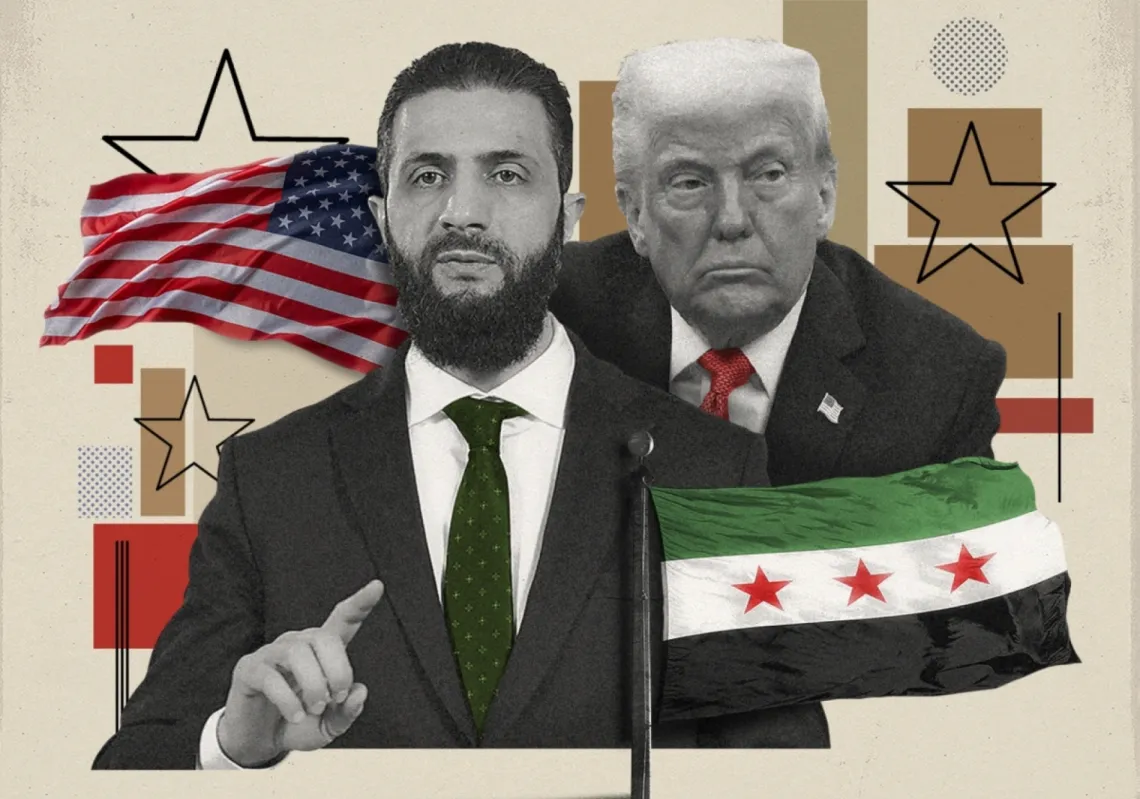Somewhere in Langley, Virginia, the headquarters of the CIA, analysts on the Middle East and North Africa desk are frantically trying to produce profile assessments of Syria’s interim president, Ahmed al-Sharaa. But they’re getting frustrated; little is known about him, having deliberately operated in the shadows for years, which raises questions about his true identity and intentions. Yet for governments wishing to rehabilitate and do business with post-Assad Syria, knowing who the most influential man on Syrian soil is, and what he has planned for the country, is vital.
Early life and foray into jihadism
Born in Saudi Arabia in 1982 to a Syrian Sunni Muslim family from the Golan Heights, little is known about his upbringing and young adulthood. Nothing in his family history suggests religious indoctrination. His father was an engineer at an oil installation, and his mother was a schoolteacher.
In 2003, at the age of only 21, al-Sharaa suddenly joined Al-Qaeda in Iraq to fight the US invasion. It’s unclear if his decision to go to Iraq was out of personal conviction or if he was indoctrinated and encouraged by any extremist group.
Seven years later, he was arrested by US forces, and after some time behind bars (unclear exactly how long), he returned to Syria, where, following a directive from Al-Qaeda’s leadership, he formed the Syrian branch of the transnational terrorist organisation. In 2012, he named it Jabhat al-Nusra (al-Nusra Front) and distanced it from Abu Bakr al-Baghdadi’s Islamic State of Iraq and the Levant to maintain operational autonomy.
Four years later, he publicly broke with Al-Qaeda to create Jabhat Fatah al-Sham, which he later merged with other radical militant entities to form Hay’at Tahrir al-Sham, or HTS, as it is known in the West. In December 2024, HTS played the leading role in toppling the Syrian regime, making al-Sharaa the de facto ruler of Syria.

Possible drivers
How al-Sharaa will govern is a function of who he is. There are three possibilities of what drives him. The first is that al-Sharaa is a true believer in the jihadist cause, and wearing a suit and speaking softly with Westerners as he has done of late is just an act until he takes over all of Syria and consolidates power. Once he does that, he will return to his radical ways and create an Islamist state in Syria inhospitable to minorities.
The second possibility is that al-Sharaa was never a genuine or serious jihadist advocate. He opportunistically joined the movement with the sole aim of deposing al-Assad. Islamist militancy was just a convenient means to gain followers and rise politically. He exploited those militant groups to gain power. The third possibility is that he was once a true believer of jihadism, but had a sudden awakening after becoming Syria’s new leader.
Clearly, the worst-case scenario for Syria and the region is the first, but this is also the least likely. Imagine how hard it would be for al-Sharaa to come back from what he has said and done over the past couple of years—endorsing inclusive governance at home, pursuing confidence-building measures with minorities, pushing for accountability and the rule of law, and opening up to the world. He knows that if he were to espouse jihadism again, it wouldn’t fly in the global community. This isn’t 2014, when the Islamic State (IS) was running amok across the region. If there’s one thing al-Sharaa has done well over the years, it is ensuring his survival with a view to the bigger picture.














